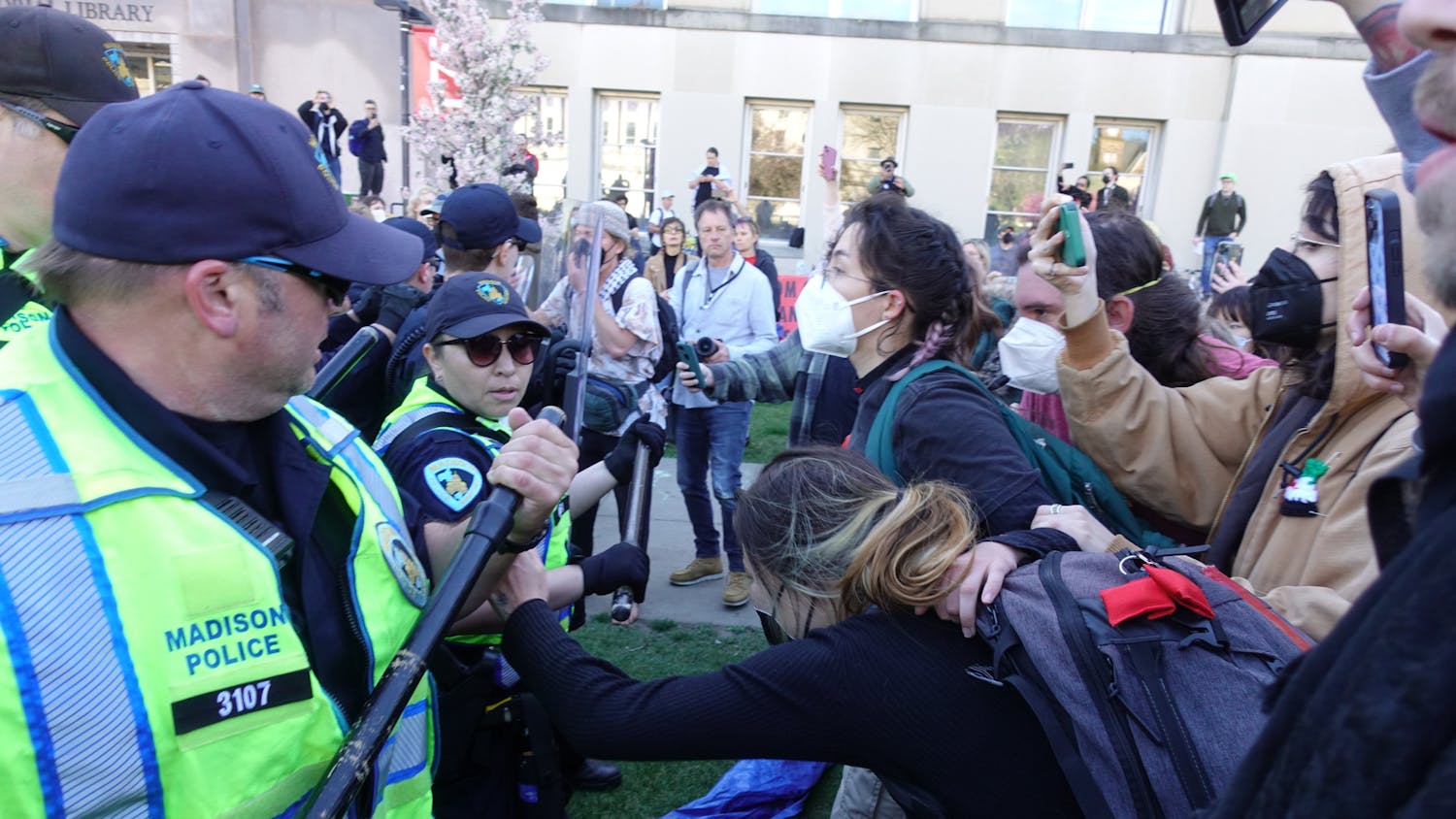For a few dollars, TouchTunes jukeboxes allow students to choose the music they hear at their favorite close-to-campus bar. They come pre-loaded with thousands of song choices, so why are artists topping hit music charts sometimes nowhere to be found?
It’s because several bars in downtown Madison are filtering popular hip-hop artists out of customers’ reach.
More than a dozen prevalent hip-hop artists—including Drake, Lil Wayne, Kendrick Lamar, Kanye West, Big Sean, T.I. and Future—have been deleted from the TouchTunes player at Wando’s Bar and Grill on University Avenue. These artists have hundreds of songs on TouchTunes players at other bars. They’re also nowhere to be found on the TouchTunes players at The Double U and Chasers Bar and Grille.
Owner Jay Wando said he doesn’t want “gangster hip-hop” at Wando’s, a term he didn’t elaborate on, because it might draw in a crowd “not driven by UW-Madison students.”
Wando denied strategically deleting most rap music from his TouchTunes player. When asked what standards he does use when deleting music, Wando responded, “I don’t remember.”

“Every decision I make in this bar is safety-driven. So if that’s dress code, if that’s music, it’s all about safety,” Wando said. “It’s just because we want UW students to be safe in a bar environment. I’ve been on campus for 29 years, and I’ve seen both sides of it.”
Operators of Wando’s and Church Key Bar both agree hip-hop is one of the most popular genres for the students. However, the amount of rap artists that can be played via TouchTunes at the two bars is very different.
Thousands of songs by the artists filtered out of the Wando’s player are available at Church Key Bar—most notably more than 200 each by Lil Wayne, Drake, Rick Ross and 50 Cent.
Armando Acosta, general manager of Church Key, said music could potentially encourage a dangerous bar environment, but that it’s “just one of hundreds of factors.”
“It comes down to your staff, your security, what you allow in your bar, if you allow people to just come in and walk all over you right away,” Acosta said. “All of that plays, not just the music; that’s one component of many. Music alone cannot just give you that.”
Acosta said that although he stays conscious of what’s playing on the TouchTunes player at Church Key, it’s “nearly one hundred percent unfiltered.”
“I know that I have the authority to go in there and filter down to the bare bones if I wanted to, but why would I want to do that and limit today’s hottest music?” Acosta said.
How hip-hop fits into the Madison music scene has raised controversy in the city before. Last year, The Frequency—a local music venue—temporarily suspended hip-hop performances for the second time since 2013 in response to a fight at one of its concerts. Following backlash from the community, the owner rescinded the ban about a week later.
Customers who come to Church Key from Double U have pointed out disparities in music selection, Acosta said.
“People will come in here either from Double U or walking by Double U and they’ll try to play songs with the phone app and say we don’t have songs we actually do,” he said. “They can’t find them because they’re still on Double U’s TouchTunes.”
Double U and Chasers have less hip-hop songs on their TouchTunes players than Wando’s.
The two bars, both owned and operated by the same family, have together filtered more than a dozen and a half prevalent hip-hop artists out of their TouchTunes selections. They kept some artists Wando’s had deleted, but often had no more than a few songs for each—a stark contrast from hundreds available at Church Key.
Double U owner Bill Rudy did not respond to multiple interview requests. Chase Rudy, owner of Chaser’s, declined to comment.






